Conductors lead busy lives, travelling between different cities and orchestras. I’ve enjoyed writing about the inner workings of the Jacksonville Symphony, but of course, that accounts for only half of what I do each season. The rest of the time is taken up with guest conducting, and my other job as assistant conductor of the New York Philharmonic. April was an especially exciting and busy month, and as I sit in the airport lounge at JFK waiting for a flight, I’m genuinely relieved it went as smoothly as it did. My schedule is usually set about 18 months in advance, and the last few weeks been at the back of my mind for a long time. So, here’s how they turned out.
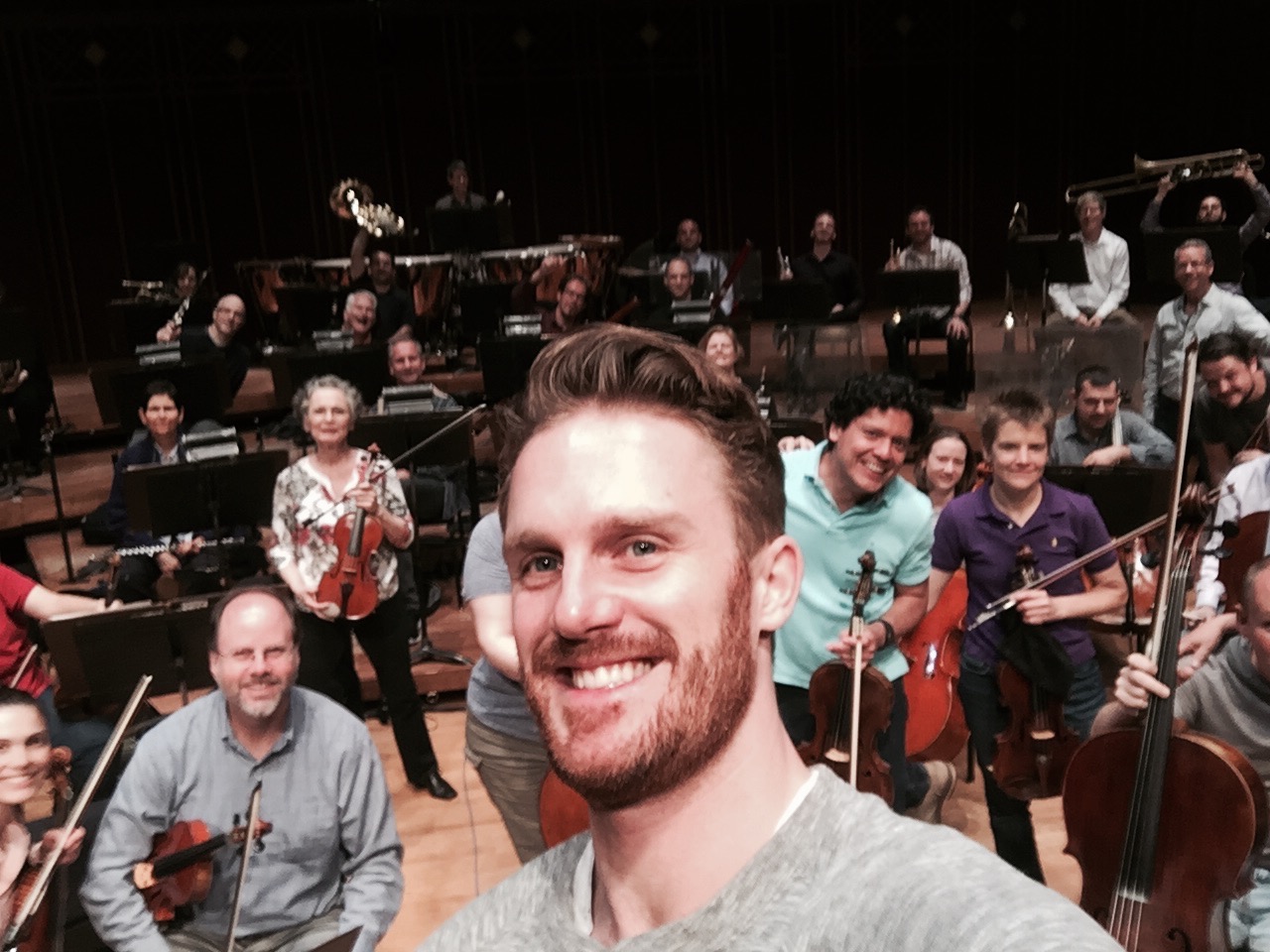
April 1-3. Concerts with the Jacksonville Symphony. My first performances of Sibelius’s Second Symphony. The experience of conducting a piece you’ve known for years for the first time is strange: new but deeply familiar. This is one of the highlights of the season, especially the Thursday night Symphony in 60 performance which is attended by over 600 people. For a new concert series, that’s fantastic. I allow myself a rare moment of pride. After the Sunday performance, I have a lovely dinner with cellist Alban Gerhardt, his wife, and Robert Massey, CEO of the Jacksonville Symphony. Up first thing the next morning for a flight to NYC.
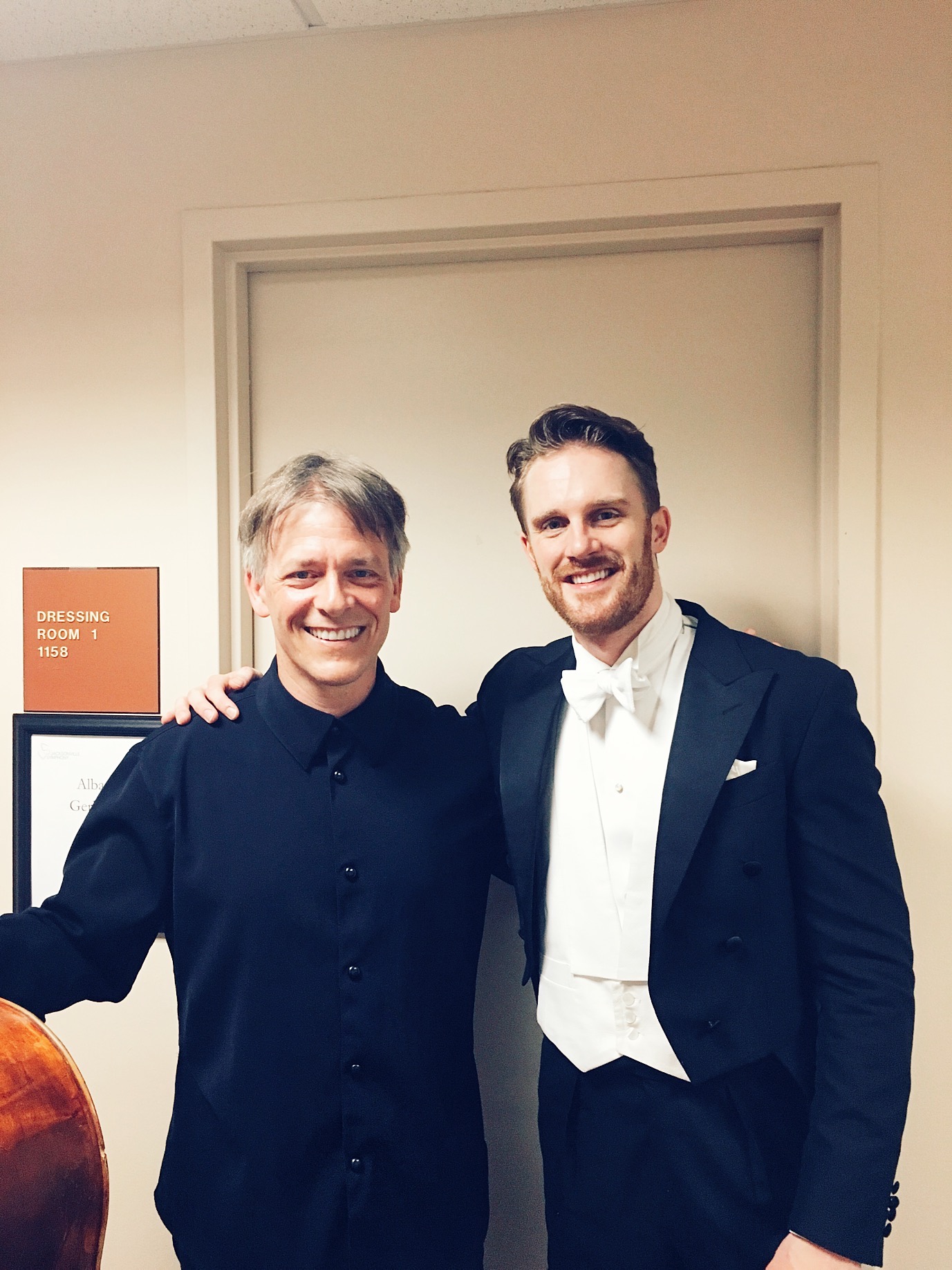
April 4. I often have short pit stops in New York during which there is just enough time to do some laundry, hug the dog, see a few friends, repack and set off again on the road. They are wonderfully grounding. I love the anonymity of being in the city.
April 5. Afternoon flight to Milwaukee. I’ve conducted the Milwaukee Symphony once before, and I’m thrilled to be returning for a program of Mozart and Stravinsky. It’s an excellent orchestra full of musicians who listen to each other as they play (not nearly as common as you might think). Rehearsals go very well, apart from one terrifying moment when my watch strap breaks. My watch flies into the air and lands on the fingerboard of the principal cellist’s instrument. Amazingly the cello is fine, but it’s really alarming (no pun intended) and I take the rehearsal break early so everyone can calm down. We rehearse two Mozart symphonies, nos. 28 and 41, and Stravinsky’s neoclassical ballet, Apollo. You might remember Apollo from Jacksonville concerts earlier in the season. I try to repeat repertoire with different orchestras during the same season so I get to know the music better and better. Mozart’s Symphony No. 41, ‘Jupiter’, is very difficult to interpret – there are so many decisions to make before you meet the orchestra. I’ve conducted it many times before, but this week I feel like finally I’ve got somewhere close to a convincing interpretation.
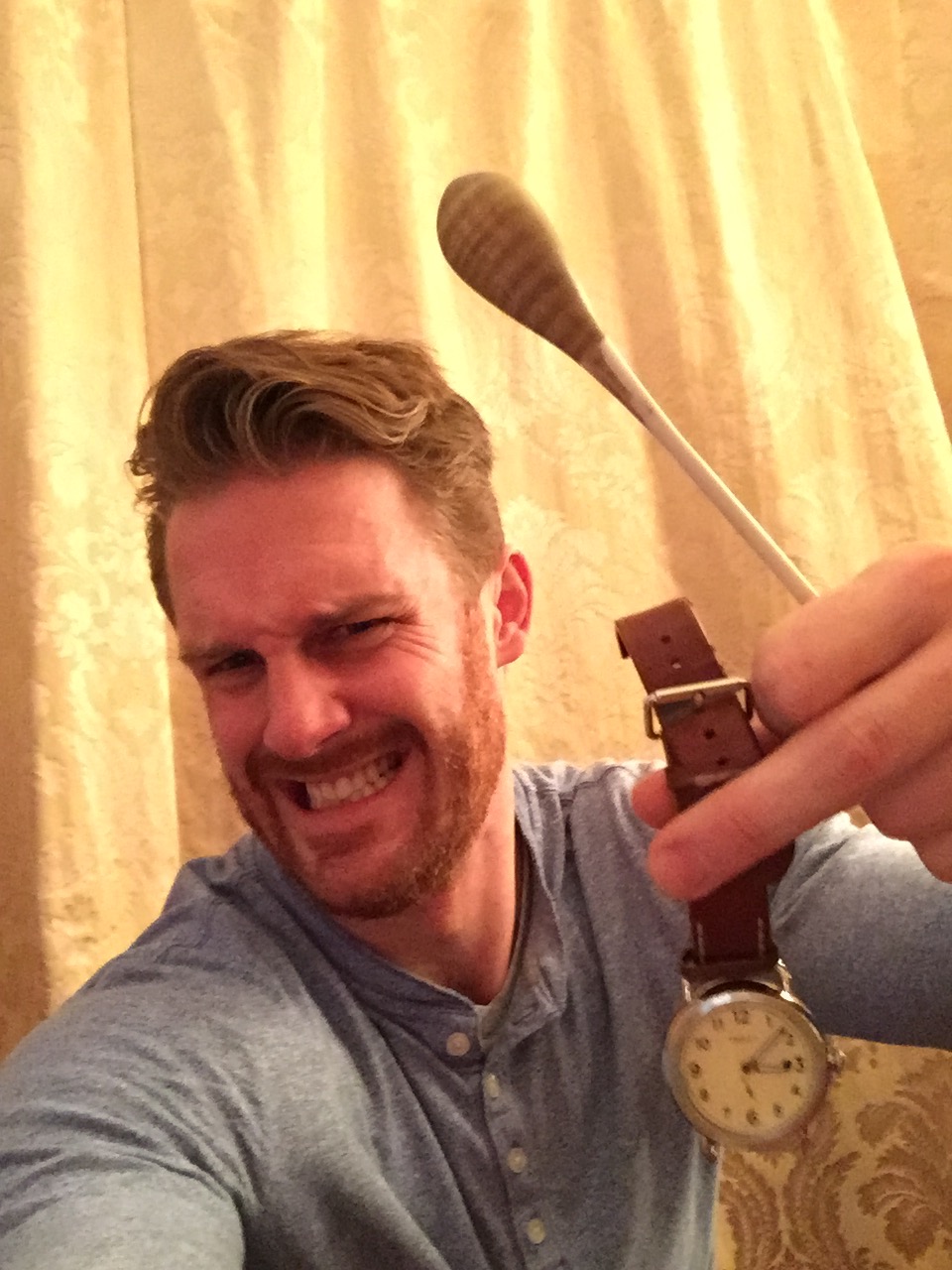
April 10. After the Sunday matinee concert, I rush to the airport for a flight back to NYC. I’m conducting a rehearsal at Juilliard the following morning. The flight is delayed by a couple of hours and I arrive home at 3.00am.
April 11. 9.30am rehearsal at Juilliard on four hours of sleep. I work frequently with the students, preparing them for rehearsals with guest conductors. It’s great fun because no one is cynical, everything is new, and I don’t have to remind everyone why they love music. This morning we are reading through Schumann’s Rhenish Symphony, ahead of a session they will have with Esa-Pekka Salonen, the composer and conductor, who is in the middle of rehearsals of Strauss’s opera Elektra across the road at the Metropolitan Opera. The students play fantastically, maybe the best I’ve heard at one of their first rehearsals. They can play anything technically brilliantly, but usually need help with style (many professional orchestras understand the style but need to work on technical things). According to the inside cover of my score, I haven’t conducted Rhenish for five years, and I make a mental note to program it somewhere as soon as possible. Incredible music that is full of joy and grandeur (especially the fourth movement which is a musical depiction of the grand Gothic cathedral in Cologne), and somehow makes you feel more healthy and whole.
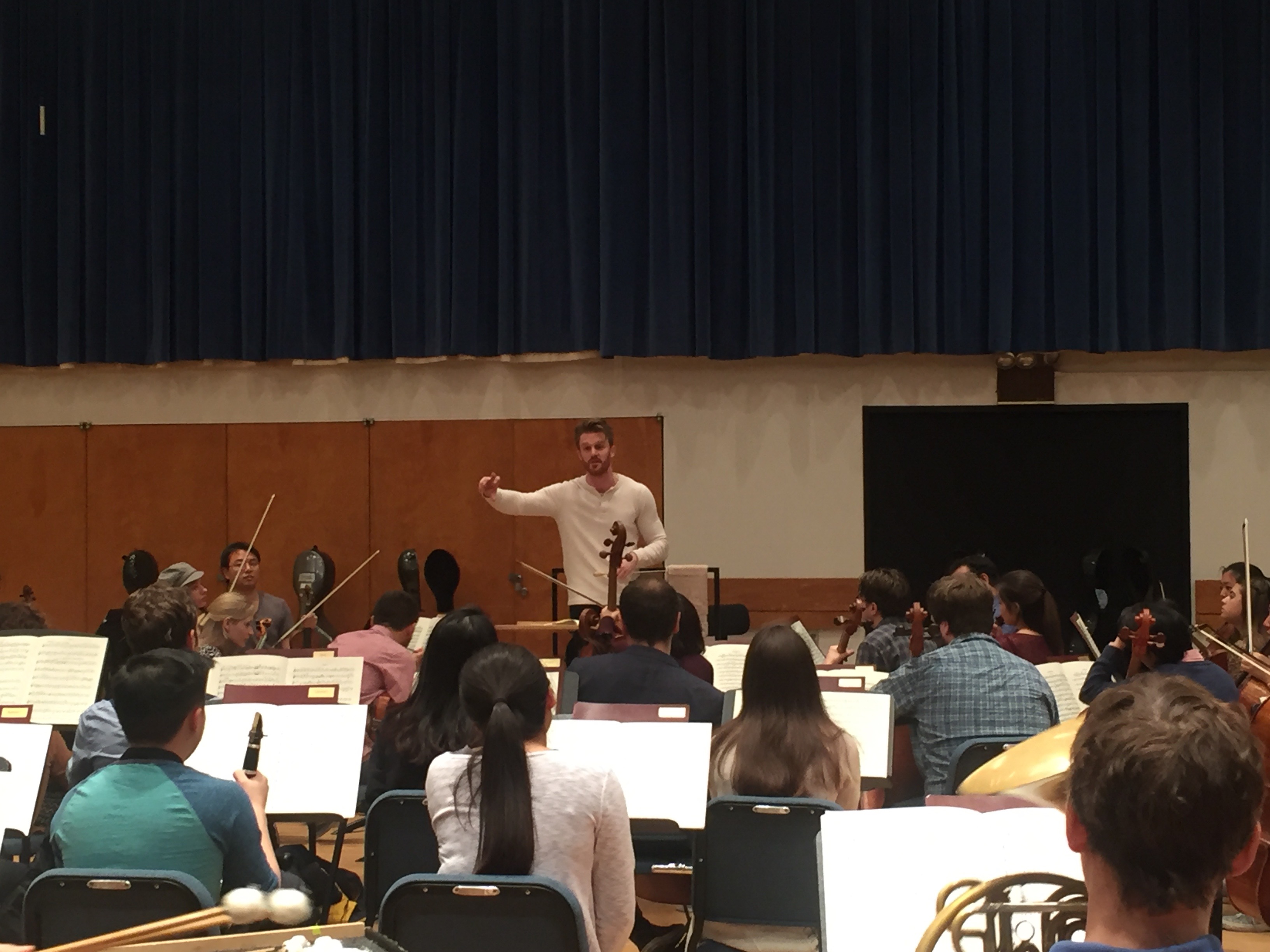
After rehearsal I have lunch with my manager. We discuss what’s happening in Jacksonville, my engagements next season, and the kind of engagements I want for the season after next. Good managers are part-conspirator, part-therapist, and I leave feeling reassured that he’s taking care of the future. Conductors play no role in booking engagements, and it can be very strange how little you know about what’s going on behind the scenes. It’s best this way. It allows us to focus on doing what we’re supposed to: making music.
April 12. Up at 7.00am to work with my personal trainer before beginning rehearsals with the New York Philharmonic. This week I’m acting as assistant conductor, which means I’m there to help the guest conductor, Bernard Haitink, and to step in if he is unable to conduct. I’ve spent a great deal of time doing this over the last seven years, first in Minnesota and now in New York. It’s a difficult gear change going from music director one week to assistant conductor the next, but the upside is the opportunity to assist the greatest conductors, like Maestro Haitink. I’m nervous about meeting him for the first time, since I’ve loved many of his recordings since I was a teenager. At 87, he is disarmingly honest and kind. He’s conducting Mahler’s Ninth Symphony, a work that is all about saying goodbye to the world. By the time he was writing the Ninth, Mahler knew about the heart condition that would kill him shortly afterwards, and the music swings between great passion and a will to live before finally seeming to accept fate. Haitink gives incredibly powerful and straightforward performances on the Friday and Saturday nights. I’m especially grateful when he asks what I’m working on. I tell him about the performances of Bruckner’s Sixth Symphony I’m about to give in Jacksonville. Haitink is a famous Bruckner conductor, and he invites me to his hotel the following morning to discuss the work. We spend an hour going through every page of the score, discussing tempo changes, transitions, balance, phrasing, and all the other things conductors fret about before rehearsals begin. I’m moved by how honest he is when answering some of my questions, unafraid to say that he’s still not completely satisfied with the solutions he’s come up with. It’s deeply reassuring to hear a master of your profession with 50 years more experience still asking the same questions you ask yourself.
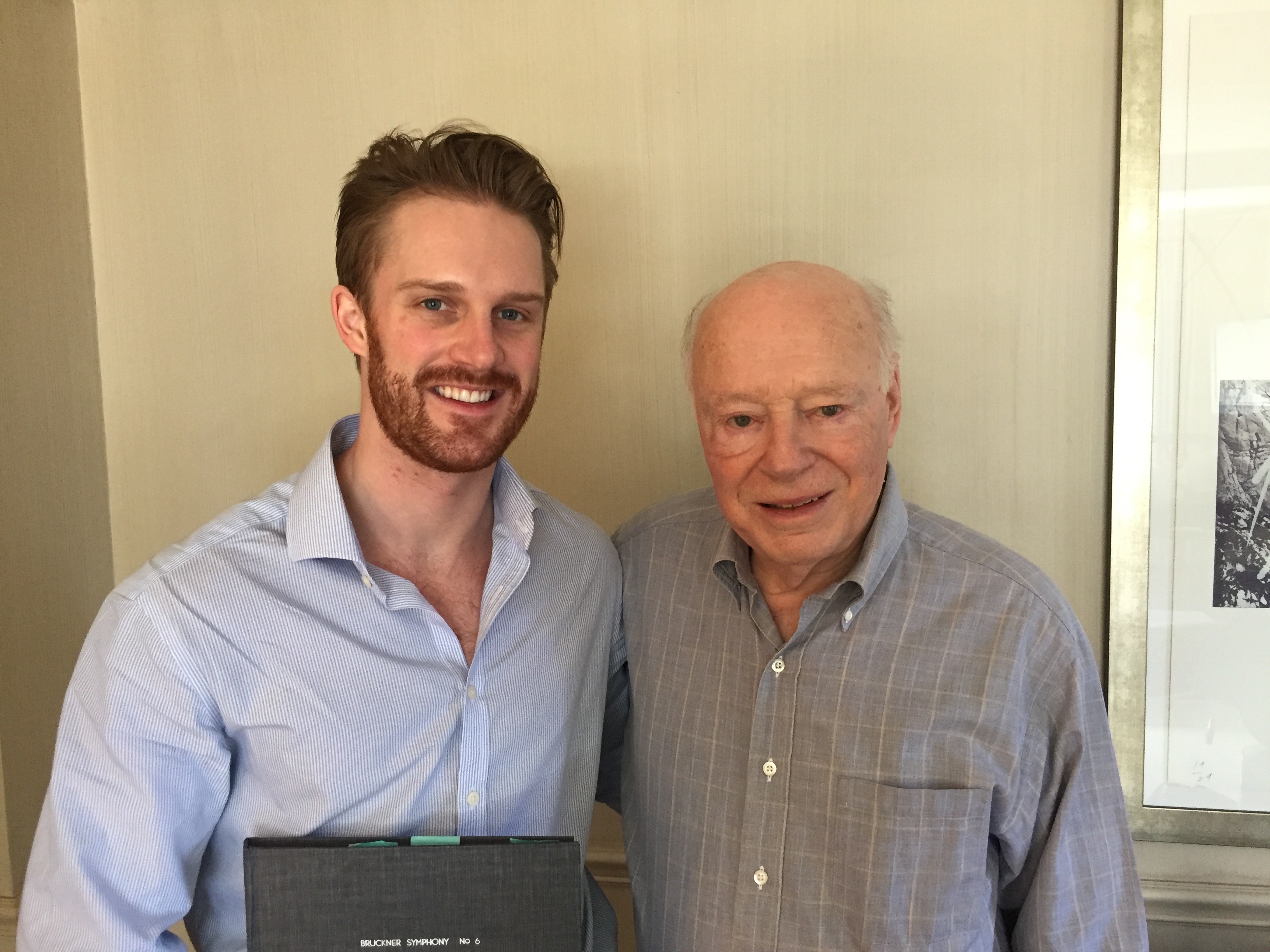
April 17. There’s still another Mahler performance to go, but I need to go to Jacksonville for the first Bruckner rehearsal. We rehearse on Sunday night as soon as I arrive. Bruckner is difficult, and the piece is new to me and the orchestra. We spend two hours playing through together. Later, I meet my realtor to finalize the closing details of the house I’ve just bought in Avondale. This is the first time I’ve bought any property, and the whole experience is thrilling and terrifying in equal measure.
April 18. Up first thing to fly back to New York. The final Mahler 9 is the most powerful of all. After the performance the musicians of the orchestra line up to thank Bernard Haitink. He has said these will be his final concerts in New York, and many musicians thank him for decades of musical partnership. After saying goodbye to Maestro Haitink, I have a drink with Alan Gilbert, the music director of the New York Philharmonic. He’s just back from concerts with the London Symphony Orchestra and we discuss war stories. Conductors usually pass each other like ships in the night, so I love the opportunity of talking to older more experienced colleagues.
April 19. Early flight back to Jacksonville and straight into Bruckner rehearsals. We usually have four rehearsals before a performance, but this week we have five since the music is so difficult. The orchestra has had a busy spell, and everyone is a little stressed out by the Sixth’s challenges. We work steadily through the symphony, and its great power lifts our spirits. The concerts also features Israeli pianist Shai Wosner in Beethoven’s Third Piano Concerto. I’ve worked with Shai before, and it’s a joy to see him again. Our musicial instincts are similar and rehearsals are a breeze. It’s great to see how much the orchestra enjoys his musicianship.
April 24. After the final concert, dinner with Shai and Robert Massey. We finish at around midnight, and at 3.30am I’m in a cab to the airport. I’m flying to Hong Kong via Soeul, South Korea. Thirty-four hours and a 12 hour time difference later……
April 25. …..I arrive at my hotel in Hong Kong. 12 hours’ time difference is exactly upside down from the East Coast, so I’m totally discombobulated and wide-awake even though it’s the middle of the night. Out come the scores. This week is Beethoven Overture to Leonore No. 2 and Walton’s biting oratorio, Belshazzar’s Feast. I’ve known the Walton since I was fourteen, but haven’t conducted it. It’s an enormously complicated piece for two choirs, orchestra, two brass bands and baritone soloist. I spent weeks learning it last summer, but now it looks alarmingly unfamiliar. After a couple of hours’ work I remember how much I love it and excitement kicks in about spending the week making it come alive.
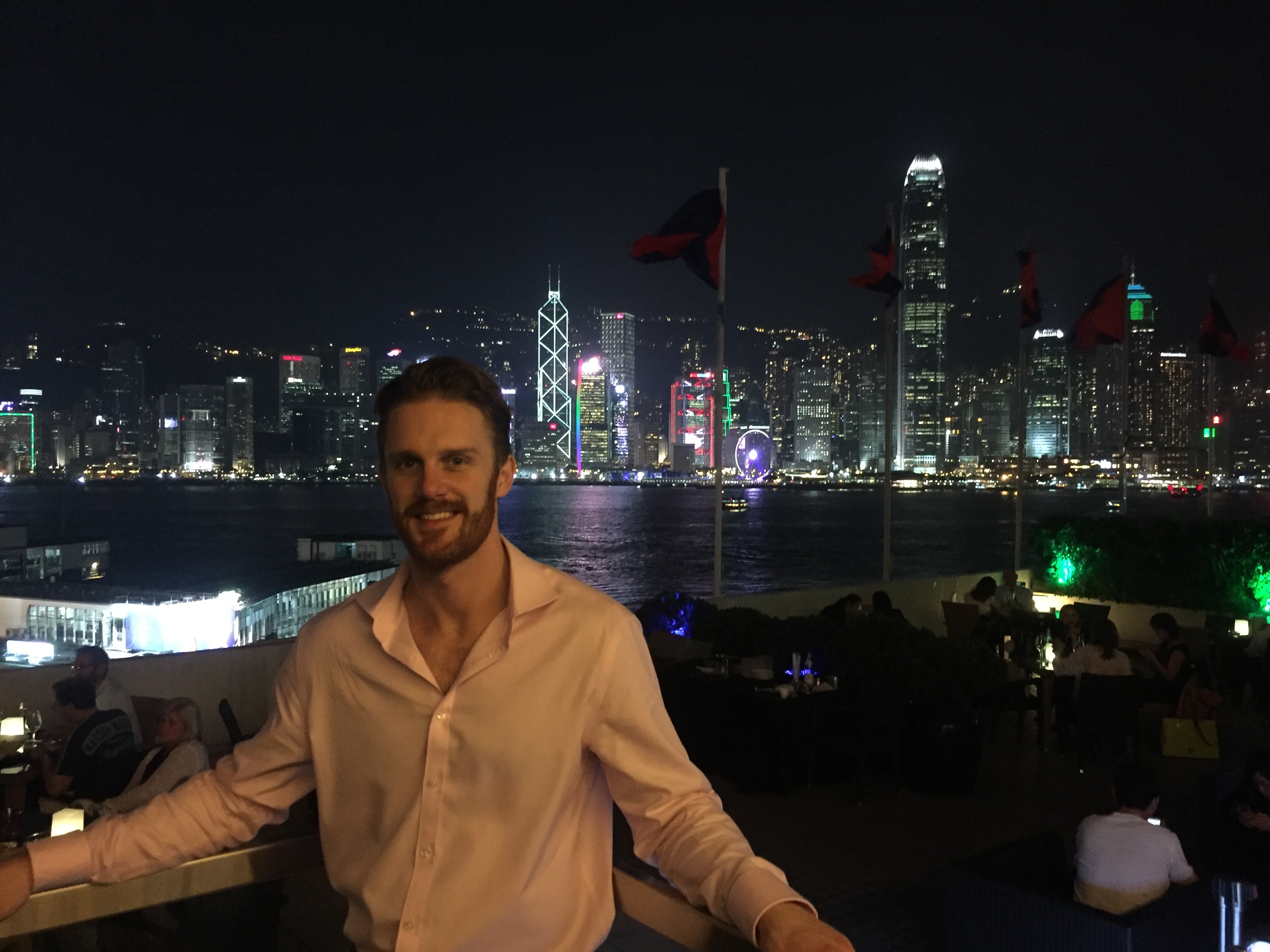
April 26. Hong Kong is fascinating, especially for a Brit. My initial reaction is one of familiarity. All the street signs are in the same font as those at home, the electrical sockets are the same shape, the hotel knows how to make a decent cup of tea (a skill that alludes many Americans). But that’s where the similarity ends. The sheer density of people on the streets makes Times Square seem rather empty, and I’ve never experienced an environment in which I’m the only Westerner. After taking the ferry from Kowloon to Hong Kong Island, I have some dim sum at a tiny restaurant recommended by a friend. It’s in one of the oldest parts of the city, with tiny shop fronts that spill out onto the street. One offers live snakes to cook for dinner. Alas, I have to rush back for an evening rehearsal.
I meet the chorus. They are well prepared, but the spiky harmonic idiom of Walton’s music is a challenge, as is the idiosyncratic English of the King James Bible. This piece is so well known in the UK that we forget how difficult it is. The chorus master reassures me that all shall be well, and I walk back to the hotel, barely able to keep my eyes open.
April 27. I meet the Hong Kong Philharmonic for the first time. Most of the wind and brass players are British and American, and nearly all the string players are Chinese. This gives rehearsals an odd dynamic: the winds and brass ‘get’ everything I say, but the strings often miss the essence of what a particular comment means. It’s very strange for me to be unable to resort to metaphor or pop-culture references when I’m not getting exactly what I want. The technical level of the playing is really astonishing, but I get the impression the strings are used to being told exactly what to do, which isn’t a good recipe for success at the beginning of a relationship. The concerts are great fun. The orchestra plays the living daylights out of the Beethoven, and the Walton is tremendously exciting with over 300 musicians on stage. I have a slight “is this really my life?” moment during the final minutes. Working with Jonathan Lemalu, a New Zealand-born bass-baritone, is a real pleasure. Hong Kong television films the concerts for broadcast in September. They have a very old-fashioned style of TV crew with enormous cameras on wheels peering into every conversation. The whole thing becomes very funny.
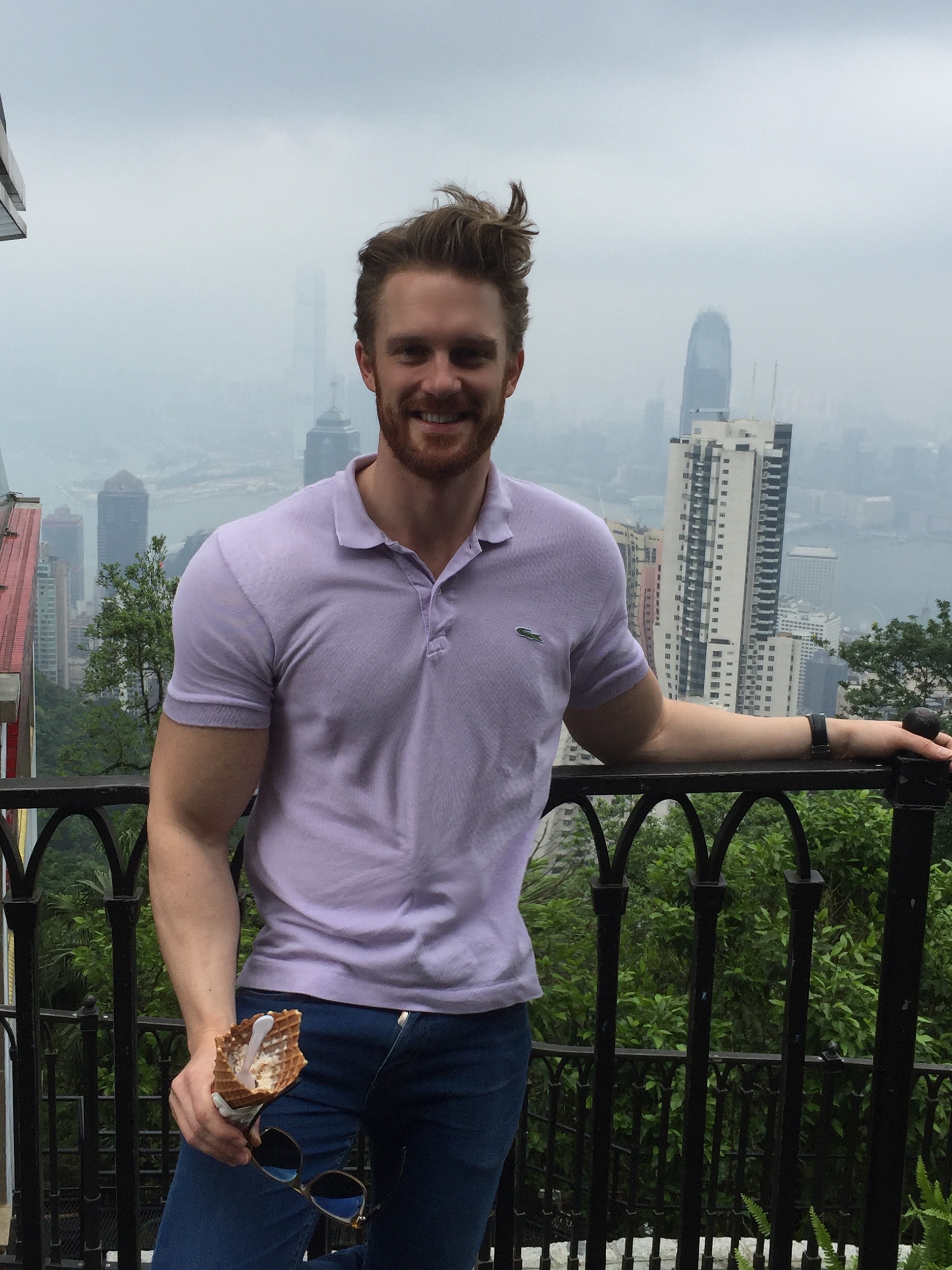
After the final concert I have dinner with some orchestra staff, the soloists and the British Consulate General. Fascinating conversation about life in Hong Kong and all things ex-pat. She is a member of the British government, so I can’t help but give her a hard time about the appalling salary cuts junior doctors are being forced into at home (both my brother and sister are medics).
May 1. Spend the early morning replying to hundreds of emails from Jacksonville about everything from programming the season after next to the logistics of our upcoming trumpet audition. Off to the airport, and back to New York City.
May 2. I have a very rare day off. Spend the evening with friends in a bar in Hell’s Kitchen, talking about everything imaginable except classical music. It’s very easy to become disconnected from people who live in the same place week after week, and non-musician friends are one of the things I value most in life. The following day I run around the city catching up on errands, before heading to JFK. My mother turns 60 today, and I’m travelling to Belfast for a black-tie party at our family home. I can’t wait to get home and see her and my siblings. The flight is delayed by three hours. Oh well…it looks like it’s time to write my blog…
Reproduced with kind permission of the Florida Times-Union. Original link: http://jacksonville.com/entertainment/music/2016-05-07/story/conducting-electricity-around-world-30-days-symphonys-courtney

We love your blog Courtney. See you Jax soon!
Ric and John
You’re pretty awesome!
hello courtney, i enjoyed finding out what you are doing this summer on the jso newsletter. i am emailing to say that i hope you will bring jonah ellsworth back at the first possible opportunity. my musical friends in boston introduced me to him and that was the favor of a lifetime. you must know that he recently joined the boston trio when their cellist joined the julliard string quartet: http://www.bostontrio.com
i heard him play the schumann cello concerto all three nights. i asked laurie cassaday what it was like to play the duet with him upon such short acquaintance and she said that it was just like a love affair – exciting, but you don’t know where is is going!